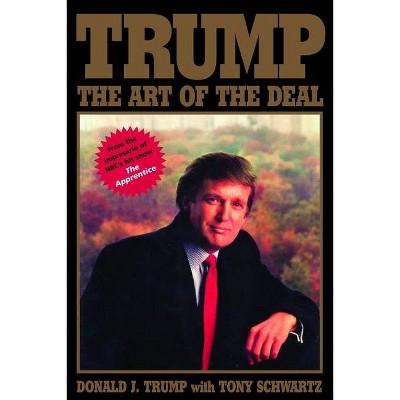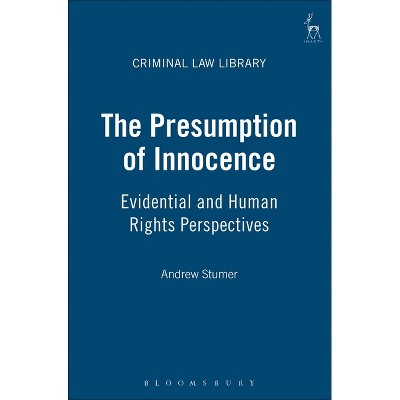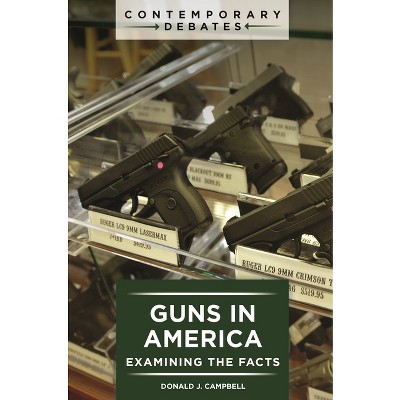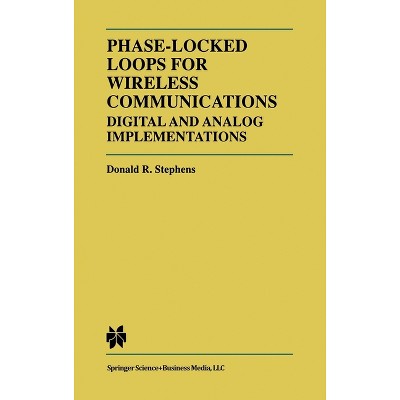Sponsored

About Guilt and Innocence - by Donald a Dripps (Hardcover)
In Stock
Sponsored
About this item
Highlights
- This remarkably original and vital work argues that the problems are rooted in a disjunction between prevailing values and the prevailing doctrinal regime in constitutional law.
- About the Author: DONALD A. DRIPPS is the James Levee Professor of Law and Criminal Procedure at the University of Minnesota Law School.
- 320 Pages
- Freedom + Security / Law Enforcement, Criminal Law
Description
About the Book
This remarkably original and vital work argues that the problems are rooted in a disjunction between prevailing values and the prevailing doctrinal regime in constitutional law. Dripps asserts that the Fourteenth Amendment's more general standards of due process and equal protection encompass the values that ought to govern the criminal process.
Why does the American criminal justice system punish too many innocent people, failing to punish so many guilty parties and imposing a disproportionate burden on blacks? This remarkably original and vital work argues that the problems are rooted in a disjunction between prevailing values and the prevailing doctrinal regime in constitutional law. Dripps asserts that the Fourteenth Amendment's more general standards of due process and equal protection encompass the values that ought to govern the criminal process.
Criminal procedure ought to be about protecting the innocent, punishing the guilty, and doing equal justice. Modern legal doctrine, however, hinders these pursuits by concentrating on the specific procedural safeguards contained in the Bill of Rights. Dripps argues that a renewed focus on the Fourteenth Amendment would be more consistent than current law with both our values and with the legitimate sources of Constitutional law, and will promote the instrumental values the criminal process ought to serve. Legal and constitutional scholars will find his account of our criminal system's disarray compelling, and his argument as to how it may be reconstructed important and provoking.
Book Synopsis
This remarkably original and vital work argues that the problems are rooted in a disjunction between prevailing values and the prevailing doctrinal regime in constitutional law. Dripps asserts that the Fourteenth Amendment's more general standards of due process and equal protection encompass the values that ought to govern the criminal process.
Why does the American criminal justice system punish too many innocent people, failing to punish so many guilty parties and imposing a disproportionate burden on blacks? This remarkably original and vital work argues that the problems are rooted in a disjunction between prevailing values and the prevailing doctrinal regime in constitutional law. Dripps asserts that the Fourteenth Amendment's more general standards of due process and equal protection encompass the values that ought to govern the criminal process. Criminal procedure ought to be about protecting the innocent, punishing the guilty, and doing equal justice. Modern legal doctrine, however, hinders these pursuits by concentrating on the specific procedural safeguards contained in the Bill of Rights. Dripps argues that a renewed focus on the Fourteenth Amendment would be more consistent than current law with both our values and with the legitimate sources of Constitutional law, and will promote the instrumental values the criminal process ought to serve. Legal and constitutional scholars will find his account of our criminal system's disarray compelling, and his argument as to how it may be reconstructed important and provoking.Review Quotes
"[A] crisply written, illuminating and provocative book. Dripps makes a powerful case for the view that the Warren Court's decision in state criminal cases to rely on specific provisions of the Bill of Rights, rather than on due process and equal protection generally, is largely responsible for modern criminal procedure's incoherence and dysfunction. Along the way, Professor Dripps demonstrates a stunning knowledge of criminal procedure and constitutional law and an impressive grasp of legal history, legal process, ...and empirical data."-Yale Kamisar The University of Michigan
"This book is a splendid blend of history, doctrine, and policy. It demonstrates the dysfunctional nature of the present system of constitutional criminal procedure and, best of all, presents a compelling alternative. It is the best book about criminal procedure that I have ever read. It shows the depth and breadth of Dripp's knowledge and scholarly ability."-George Thomas Rutgers University
?[A] comprehensive and thoughtful critique of the Court's criminal procedure jurisprudence. While Dripps surveys the entire field of constitutional criminal procedure, the book pays close attention to the Court's Fourth, Fifth and Sixth Amendment cases. Topics such as search and seizure, the exclusionary rule, police interrogation and the right to counsel receive scrupulous analysis by Dripps....Dripps' book is essential reading for anyone interested in constitutional criminal procedure. Whatever one's political persuasion, reading Dripps' book will force them to think anew about how the Supreme Court constructs constitutional criminal procedure.?-Constitutional Commentary
?[A] distinctive and distinguished contribution to both constitutional law and criminal proceedure....The first five chapters are lively and perceptive, often dazzingly insightful; the remainder is provocative and interesting....[a]n outstanding book. Its doctrinal analysis is clear and compelling; its proposals are thoughtful and interesting, and its exposition is elegant and engaging. The book is a credit to its author and a model for the field.?-The Law and Politics Book Review
?Most such histories discuss only doctrine, but this book discusses the policy impact of the changes the Court wrought, and considers empirical research. Like many previous chroniclers, Dripps concludes that selective incorporation was a mistake and that justice would have been better served had the Court allowed the states to develop fair but flexible procedures without reference to the Bill of Rights. But unlike them, Dripps argues from the Left. Unlike conservatives, who argue that selective incorporation harmed states' rights, Dripps suggests that it contributed to the racism and class bias that so dramatically contaminate criminal justice procedures today. Though the argument is often hard to follow, this important book provides a different perspective on an extremely important subject. Highly recommended. Upper-division undergraduates and above.?-Choice
"ÝA¨ comprehensive and thoughtful critique of the Court's criminal procedure jurisprudence. While Dripps surveys the entire field of constitutional criminal procedure, the book pays close attention to the Court's Fourth, Fifth and Sixth Amendment cases. Topics such as search and seizure, the exclusionary rule, police interrogation and the right to counsel receive scrupulous analysis by Dripps....Dripps' book is essential reading for anyone interested in constitutional criminal procedure. Whatever one's political persuasion, reading Dripps' book will force them to think anew about how the Supreme Court constructs constitutional criminal procedure."-Constitutional Commentary
"ÝA¨ distinctive and distinguished contribution to both constitutional law and criminal proceedure....The first five chapters are lively and perceptive, often dazzingly insightful; the remainder is provocative and interesting....Ýa¨n outstanding book. Its doctrinal analysis is clear and compelling; its proposals are thoughtful and interesting, and its exposition is elegant and engaging. The book is a credit to its author and a model for the field."-The Law and Politics Book Review
"[A] comprehensive and thoughtful critique of the Court's criminal procedure jurisprudence. While Dripps surveys the entire field of constitutional criminal procedure, the book pays close attention to the Court's Fourth, Fifth and Sixth Amendment cases. Topics such as search and seizure, the exclusionary rule, police interrogation and the right to counsel receive scrupulous analysis by Dripps....Dripps' book is essential reading for anyone interested in constitutional criminal procedure. Whatever one's political persuasion, reading Dripps' book will force them to think anew about how the Supreme Court constructs constitutional criminal procedure."-Constitutional Commentary
"[A] distinctive and distinguished contribution to both constitutional law and criminal proceedure....The first five chapters are lively and perceptive, often dazzingly insightful; the remainder is provocative and interesting....[a]n outstanding book. Its doctrinal analysis is clear and compelling; its proposals are thoughtful and interesting, and its exposition is elegant and engaging. The book is a credit to its author and a model for the field."-The Law and Politics Book Review
"Most such histories discuss only doctrine, but this book discusses the policy impact of the changes the Court wrought, and considers empirical research. Like many previous chroniclers, Dripps concludes that selective incorporation was a mistake and that justice would have been better served had the Court allowed the states to develop fair but flexible procedures without reference to the Bill of Rights. But unlike them, Dripps argues from the Left. Unlike conservatives, who argue that selective incorporation harmed states' rights, Dripps suggests that it contributed to the racism and class bias that so dramatically contaminate criminal justice procedures today. Though the argument is often hard to follow, this important book provides a different perspective on an extremely important subject. Highly recommended. Upper-division undergraduates and above."-Choice
About the Author
DONALD A. DRIPPS is the James Levee Professor of Law and Criminal Procedure at the University of Minnesota Law School.Shipping details
Return details
Frequently bought together
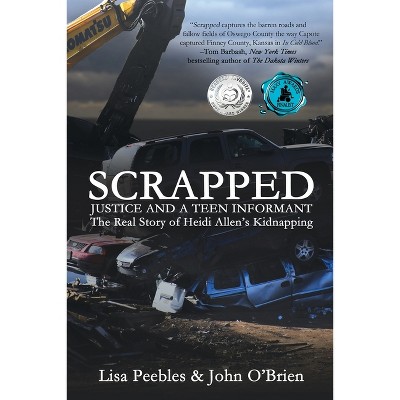
Trending Non-Fiction






Discover more options
